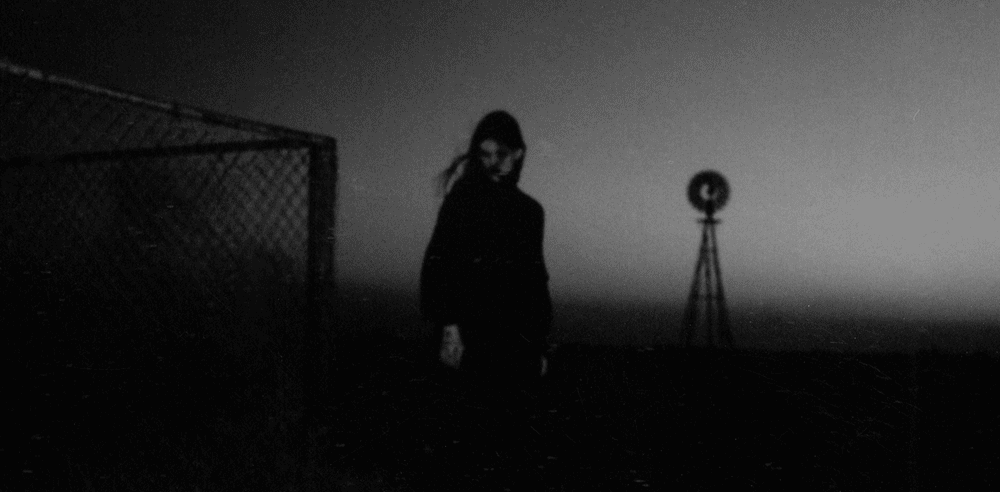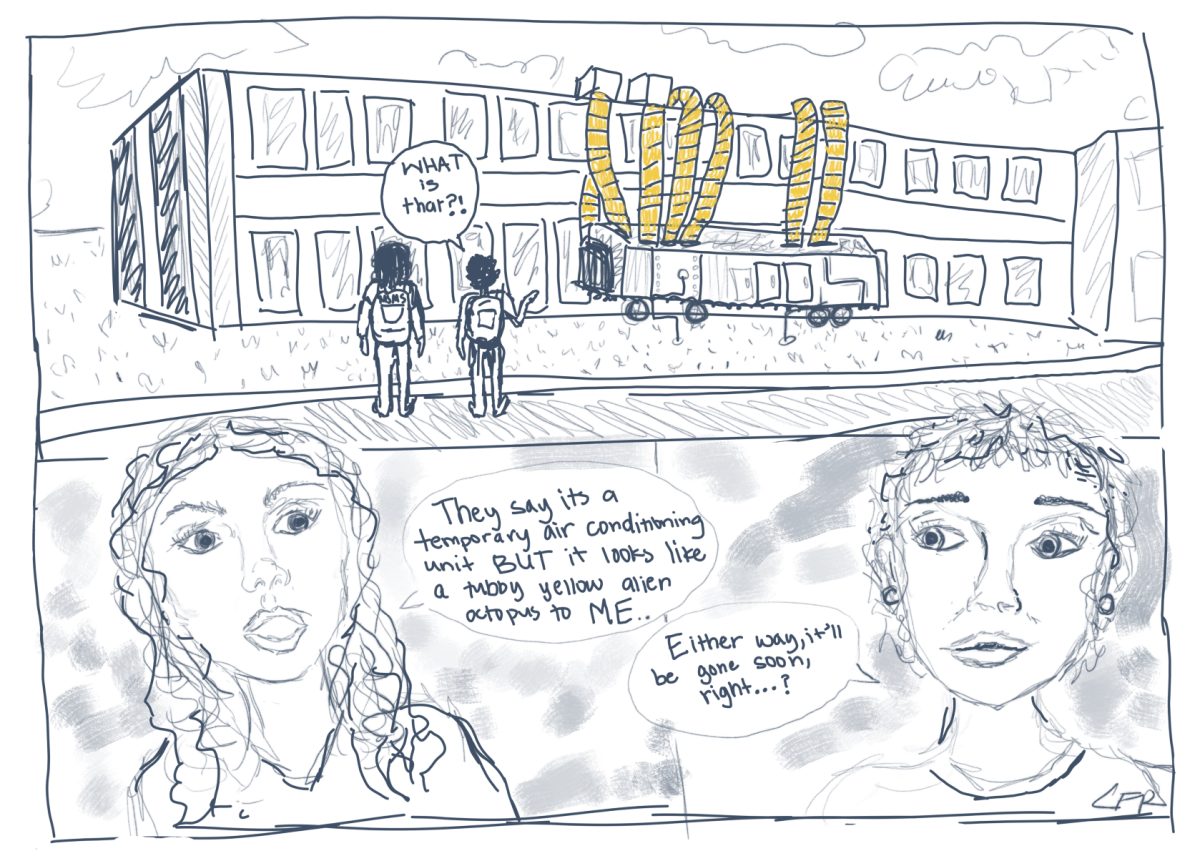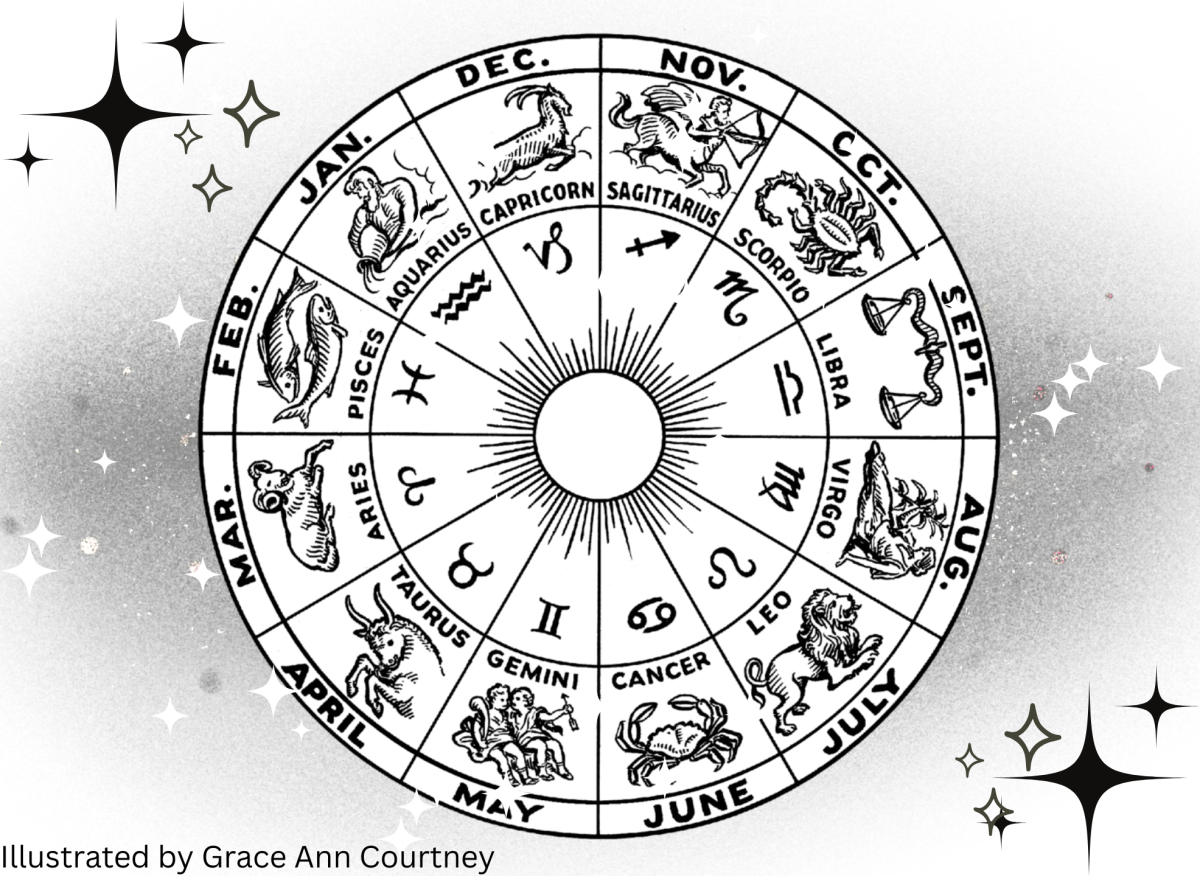Ethel Cain’s newest album, Perverts, utilizes static ambient noises, solemn background vocals and drone music to create an eerie atmosphere. The famous lyricism and storytelling prevalent in Cain’s debut album, Preacher’s Daughter, remain. However, Cain has added distorted instrumentals and startling changes, using a new type of music — noise and drone — to create an entirely different and even scary piece of art.
Perverts opens with its title track. The song begins with Cain singing the 19th-century Christian hymn, “Nearer, my God, to thee.” Cain’s rendition is everything short of heavenly, though. Cain distorts her vocals to the point of unrecognition and adds an uncanny static background. The result is horrific — it sounds like it would be featured in the trailer of a horror movie. After the hymn ends, an unfamiliar narrator — present in many songs throughout the album — starts to speak.
Through some of the track’s lyrics, Cain reveals the idea that self-pleasure is a sin has been instilled into her. She immediately responds to this idea with the lyric: “No one you know is a good person.” The lyric sets up the album theme of Cain’s struggle with her sexuality and religion by implying two conflicting ideals. The duality conveys Cain’s internal strife, putting the listener in a state of uncertainty going forward into the album. The narrator also contributes to the unsettling atmosphere with her robotic distorted voice, unusual placements of stresses in words and atypical cadence of speaking.
“Perverts” closes with the album’s mantra, “It’s happening to everybody,” implying the desires Cain was criticized for lurk in everyone and are waiting for the day they can come to life. The components of this track perfectly set the mood for the album.
The ending ambient noise of “Perverts” seamlessly transitions into “Punish,” the second track. “Punish” is starkly different from “Perverts.” In “Punish,” Cain returns to her unmoderated, angelic vocals and implements a grim yet gorgeous piano and guitar instrumental.
Cain delves deeper into condemning self-pleasure with “Punish.” For example, she sings, “I am punished by love,” suggesting she is condemned for her acts of love because they are seen as wrong by the people around her. Cain then explains how these outside judgments affected her with the lyrics, “In the morning I will mar myself again / He was a natural Plauché / Saying, ‘You won’t forget this.’” Here, Cain reveals the external shame she has been subjected to has become internalized, and she views her lover as someone inflicting shame — not love — on her. Plauché is a reference to a man who punished someone for committing a crime of lust, which is how Cain sees her sexual partners. “Punish” closes with an instrumental consisting of a climatic electric guitar fading back into the simple and solemn piano and guitar.
The story of Cain’s ostracization due to her perversion and its effects continues in “Vacillator.” A vacillator is an indecisive person, and in the context of a relationship, it means they’re unwilling to fully commit. Cain’s indecisiveness is between the emotional and physical connection of her relationship. Cain wants her lover to fulfill her physical desires but refuses to build the emotional connection that comes with those actions. Her inability to form that emotional connection is likely caused by past punishments for expressing her physical desires.
Cain shows the nature of her relationship in three lyrics. In the first, “You won’t lose me to thunder or lightning / but you could to crowded rooms,” Cain is showing something powerful as thunder or lightning — likely referring to God’s wrath, as evidenced by Job 37: 2-13 — could not shake their bond. However, if they were in crowded rooms and exposed to others, Cain would not feel comfortable expressing their relationship.
The second lyric, “Close the door, let me in,” shows the extent of Cain’s vacillation by combining two opposing phrases, similar to how she did in “Perverts.” She also implies she only wants her lover to be with her when the door is closed.

The third lyric, “If you love me, keep it to yourself,” is repeated eight times. As a vacillator, she doesn’t want to hear her partner’s proclamation of love because she would have to address the emotional side of their relationship. The music video for “Vacillator” also adds to this point as it features Cain provocatively dancing, assumingly to seduce her partner. However, rather than on a bed or couch, Cain is dancing on a wooden table in a dingy basement. The isolation of the room and her sensual dance corresponds to the isolation of her relationship.
While other songs on Perverts have been a testament to Cain’s lyricism, “Thatorchia” has no lyrics. The track instead focuses on Cain’s ability to create beautiful and captivating musical arrangements such as “Televangelism” and “August Underground” from Preacher’s Daughter. The track begins with very distorted, droning noises — similar to how it sounds if someone talks into a phone on a call with a phone right next to it, except with a much lower pitch. The buzzing continues for about three minutes before it’s joined by haunting background vocals. The reverberation leaves the droning sound, and the noise and vocals crescendo until they are joined by an electric guitar. The electric guitar, a staple of Cain’s music, starts to blend in with the rumbling and Cain’s vocals rise above all. All three start growing until the guitar and droning abruptly cut off, leaving only Cain’s angelic vocals for the final few seconds. With only three components, Cain creates an outstanding instrumental track that encapsulates the mood and meaning of Perverts.
Perverts is an extremely experimental album, differing from Cain’s most popular songs. To her big fans, however, the album is reminiscent of previous works such as “Ptolemaea.” The droning ambient noise that creates a transition between each song brings the EP and its story together spectacularly. Cain cemented herself as an outstanding musical storyteller with Preacher’s Daughter and has added more proof to that claim by instilling a deep sense of fear in the listener through the production and lyricism of Perverts.















jake heisler • Feb 6, 2025 at 10:58 pm
wow what a cool article must have been written by someone equally as cool and awesome